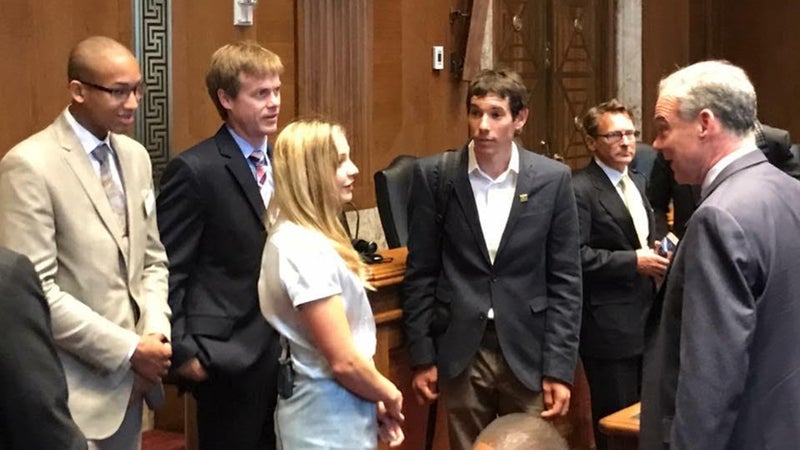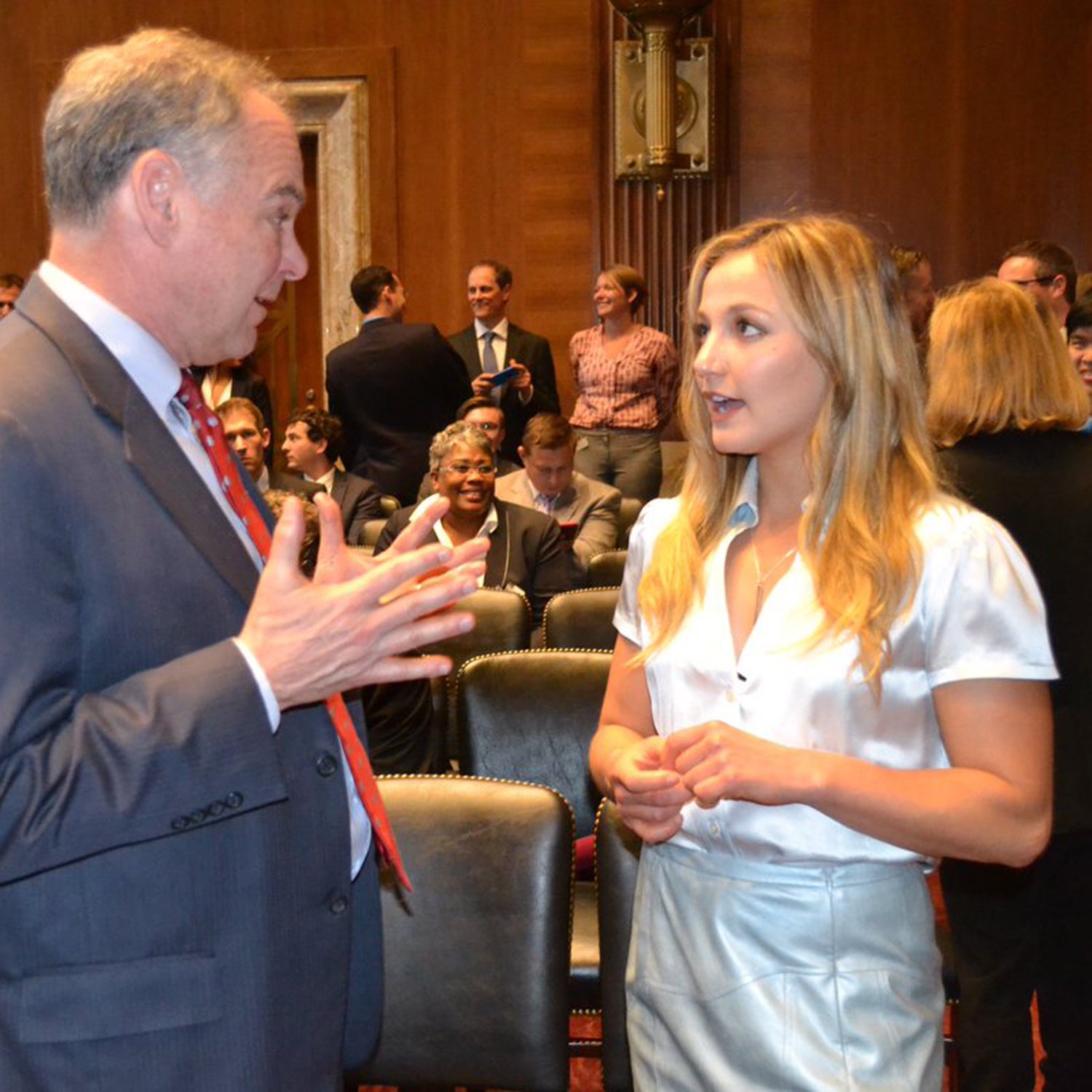While traveling abroad in Western Europe for the past two months, I felt a palpable disdain toward our government. Many of my foreign climbing friends asked me how we could elect Donald Trump as our president and, short of defending my own vote, there is little I can say to explain. But instead of using Trump’s election as an excuse to give up on politics, I’m trying to dig in.
Americans are experiencing unprecedented threats to our public lands. Both state and federal lawmakers have introduced measures threatening to sell off millions of acres, weaken public management, underfund land management agencies, and increase land development at the cost of public access—that means less space for climbing, paddling, hiking, and all the other ways we love to play in the outdoors. So last week I flew back from on a two-month climbing trip in Europe to in defense of our public lands. My role was to serve as one of the athlete ambassadors for the and the , alongside Alex Honnold, Kai Lightner, Caroline Gleich, , and Tommy Caldwell.
On Thursday morning, we all congregated for a primer on public land policy. For example, I hadn’t heard of the before, but it’s one of the most important mechanisms presidents have for setting aside national monuments. Led by American Alpine Club CEO Phil Powers, we met with various Congressmembers sympathetic to our cause, including Senator Bernie Sanders, who told me he was in complete agreement about the significance of the outdoor industry and the need to defend legislation that protects public lands.
“People find climbers to be incredibly exciting. We are like a special interest group. We can harness that to help deliver the message and make what we value known and hopefully make change.”
We spent the day on Capitol Hill meeting with lawmakers in their offices and spreading our message. The culmination was speaking at a Congressional Briefing before a packed room. Tommy, Alex, and I each spoke, and Kai and Libby joined the stage for a Q&A panel. I focused on the growth of the climbing industry over the past decade, and highlighted the fact that our National Parks are huge sources of international tourism and help support local economies around the country. According to , the recreation economy supports $887 billion in direct consumer spending, 7.6 million American jobs, and $124.5 billion in federal, state, and local tax revenue.
At the forefront of our meetings was discussing the and more than 20 national monuments, including Bears Ears National Monument in Utah. Bears Ears includes the ultra-classic Indian Creek climbing area and many other remote climbing destinations. But since its establishment by President Obama in December, Utah lawmakers have been pressuring President Trump to rescind it. Trump’s call for a review is the first step in undermining the authority of the Antiquities Act and could potentially unravel protections on some of our favorite parks.

What struck me as surprising was the interest that the representatives we met with had in our sport. I didn’t anticipate that sharing memories of my time outdoors—climbing at Indian Creek or visiting Joshua Tree—could evoke empathy in politicians. Senator Tim Kaine made a special appointment for a photo opp and to attend our Congressional Briefing, and to discuss his mutual love for the outdoors. , “Great meeting today! A powerful role model & advocate for the outdoors. Plus… she’s a Virginian!”
“People find climbers to be incredibly exciting. We are like a special interest group,” Alex Honnold says. “We can harness that to help deliver the message and make what we value known and hopefully make change.”
I couldn’t agree more. As outdoor athletes and enthusiasts, we have a responsibility to our community beyond sheer performance. We have platforms to reach more people than we may know personally, and connections to business leaders and politicians that can influence legislative changes. We need to ban together and make our voices heard. “We feel it is really important to take a stance and to make our position known,” said Greg Thomsen of Adidas Outdoors, which sponsored Climb the Hill. “We support climbers and all outdoors people who want access to our public lands and the protection of these majestic areas from overdevelopment and environmental damage.”
The comment period for the revision of Bears Ears has just begun and it is only two weeks long. It is incredibly important that we all weigh in. Go , and sign your name to a note to Interior Secretary Ryan Zinke letting him know that our outdoor spaces need to be protected.


